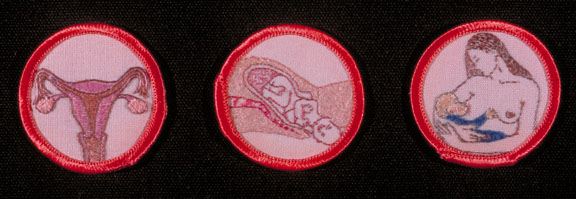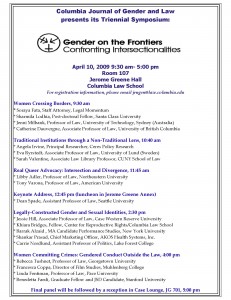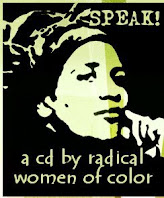She goes by Hinda, but that’s not her real name. That’s what she’s called by the many Iraqi sex traffickers and pimps who contact her several times a week from across the country. They think she is one of them, a peddler of sexual slaves. Little do they know that the stocky auburn-haired woman is an undercover human-rights activist who has been quietly mapping out their murky underworld since 2006.
That underworld is a place where nefarious female pimps hold sway and where impoverished mothers sell their teenage daughters into a sex market that believes females who reach the age of 20 are too old to fetch a good price. The youngest victims, some ages 11 and 12, are sold for as much as $30,000, while others can go for as little as $2,000. “The buying and selling of girls in Iraq, it’s like the trade in cattle,” Hinda says. “I’ve seen mothers haggle with agents over the price of their daughters.” (See pictures of Iraq since the fall of Saddam Hussein.)
The trafficking routes are both local and international, and most often connect to Syria, Jordan and the gulf (primarily the United Arab Emirates). The victims are trafficked either illegally on forged passports or “legally” through forced marriages. A married female, even one as young as 14, raises few suspicions if she’s traveling with her “husband.” The girls are then divorced upon arrival and put to work. (See Iraq’s return to normality.)
Nobody knows exactly how many Iraqi women and children have been sold into sexual slavery since the fall of Saddam Hussein’s regime in 2003. There is no official number because of the shadowy nature of the business. Baghdad-based activists like Hinda and others estimate it to be in the tens of thousands. Still, it remains a hidden crime, one that the 2008 U.S. State Department’s Trafficking in Persons report says the Iraqi government is not combating. Baghdad, the report says, “offers no protection services to victims of trafficking, reported no efforts to prevent trafficking in persons and does not acknowledge trafficking to be a problem in the country.”
While sexual violence has accompanied warfare for millenniums and insecurity always provides opportunities for criminal elements to profit, what is happening in Iraq today reveals how far a once progressive country (relative to its neighbors) has regressed on the issue of women’s rights and how ferociously the seams of a traditional Arab society that values female virginity have been ripped apart. Baghdad’s Minister of Women’s Affairs, Nawal al-Samarraie, resigned last month in protest of the lack of resources provided to her by the government. “The ministry is just an empty post,” she told TIME. “Why do I come to the office every day if I don’t have any resources?” Yet even al-Samarraie doesn’t think sex-trafficking is an issue. “It’s limited,” she said, adding that she believed the girls involved choose to engage in prostitution.
That’s a view that infuriates activists like Yanar Mohammed, who heads the Organization of Women’s Freedom in Iraq. “Let me take her to the nightclubs of Damascus and show her [trafficked] women by the thousands,” she says. To date, the government has not prosecuted any traffickers. And for the past year it has prevented groups like Mohammed’s from visiting women’s prisons, where they have previously identified victims, many of whom are jailed for acts committed as a result of being trafficked, such as prostitution or possessing forged documents. ….
Read the entire article. I’m uncomfortable with the author’s decision to highlight the fact that “mothers” are selling their daughters. I don’t doubt that it happens, but nothing in the article suggests that “mothers” or even women are doing the majority of the trafficking. The recent UN Report I blogged about reported that a disproportionate number of women are involved in human trafficking, not only as victims, but also as traffickers, which the report framed as “former victims have becoming perpetrators.” According to the report:
The data gathered on the gender of offenders in 46 countries suggest that women play a key role as perpetrators of human trafficking. In Europe, for example, women make up a larger share of those convicted for human trafficking offences than for most other forms of crime.
That more European women than men were convicted of trafficking doesn’t prove more women are engaged in it. But the fact that many female “former victims,” unable to exit the trade, cut the best deals for themselves they can under the circumstances by becoming pimps so that they no longer have to sexually service men shouldn’t be surprising.
–Ann Bartow














 Tennis.com features
Tennis.com features 




 Is it just me, or is there something a little odd about the similarity between the “slow-sex movement,”described
Is it just me, or is there something a little odd about the similarity between the “slow-sex movement,”described  Feminist Law Prof Nancy Polikoff (American) has been nominated for The Publishing Triangle’s Judy Grahn Award for Lesbian Nonfiction for her excellent book Beyond Straight and Gay Marriage. The Judy Grahn Award honors the American writer, cultural theorist and activist (b. 1940) best known for
Feminist Law Prof Nancy Polikoff (American) has been nominated for The Publishing Triangle’s Judy Grahn Award for Lesbian Nonfiction for her excellent book Beyond Straight and Gay Marriage. The Judy Grahn Award honors the American writer, cultural theorist and activist (b. 1940) best known for


 Earlier this week, the FDA approved a “second-generation” female condom. Health Day News reported on it
Earlier this week, the FDA approved a “second-generation” female condom. Health Day News reported on it 


